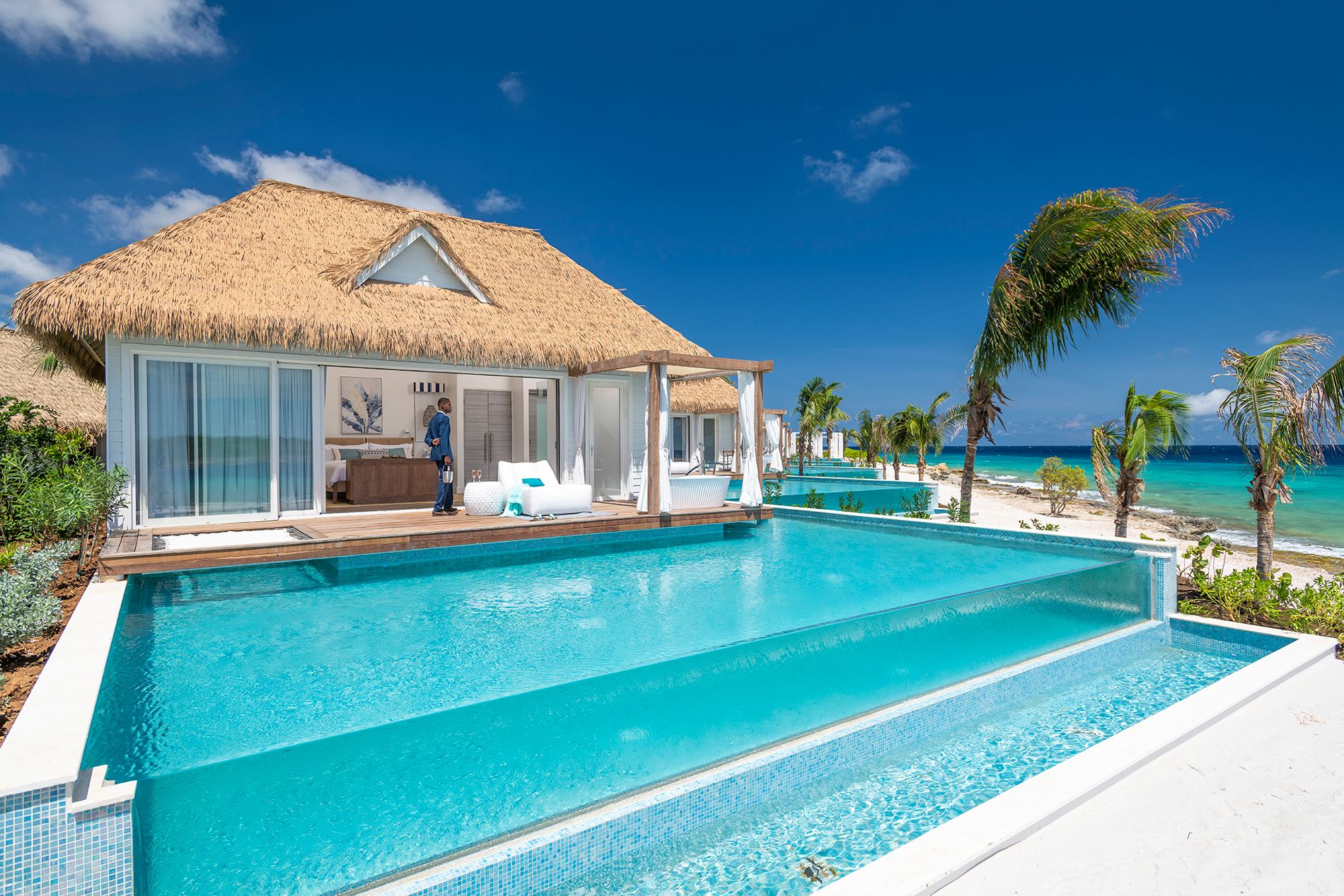
Picture: If you want to soak up everything Curacao is known for, the good vibes are waiting at the Awa Seaside Butler Bungalow with a private pool at Sandals Royal Curacao.
Curaçao is a true Caribbean gem, just waiting to sweep you off your feet. This charming southern island has everything you could want in a holiday—lush national parks like Christoffel, bursting with striking natural beauty, and some of the Caribbean’s most captivating beaches, like Playa Lagun. You can even visit an ostrich farm, where you’ll meet baby ostriches and hop on a safari ride for a little wild adventure!
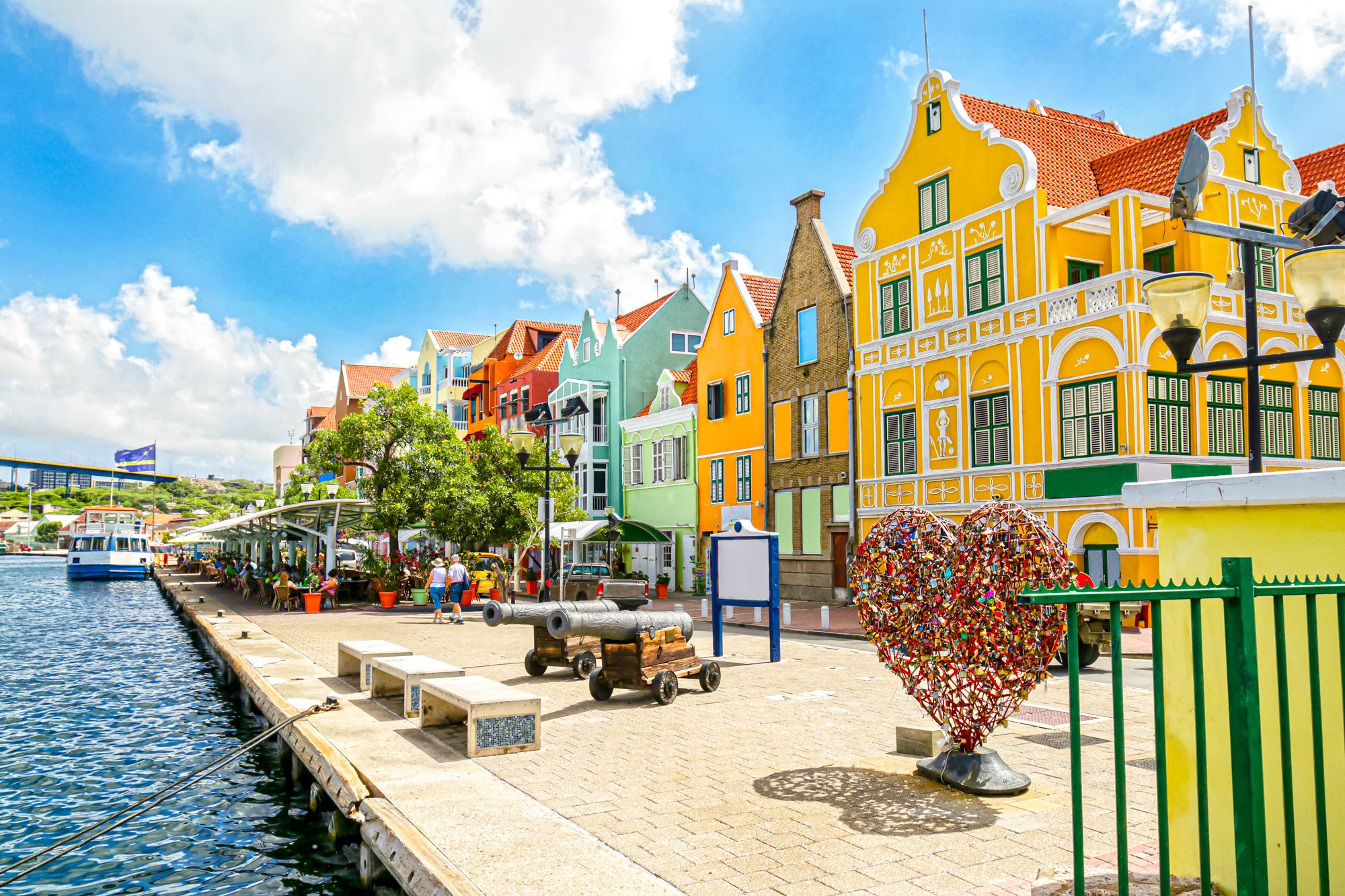
How to pronounce Curaçao. The name of the island destination starts with a hard 'C', while the 'ç' is pronounced as an “s”. Curaçao is pronounced as 'Cure-ah-souw'.
Curaçao is part of the ABC island chain that includes Aruba to its West and Bonaire to its East, and this island stands out for more reasons than one. It’s colourful history includes periods of rule by the Spanish, British and finally the Dutch. Evidence of this can be seen in Curaçao’s architecture, museums, parks, music, languages and in its people.
So, without further ado, here are our top picks of the 18 things Curaçao is known for:
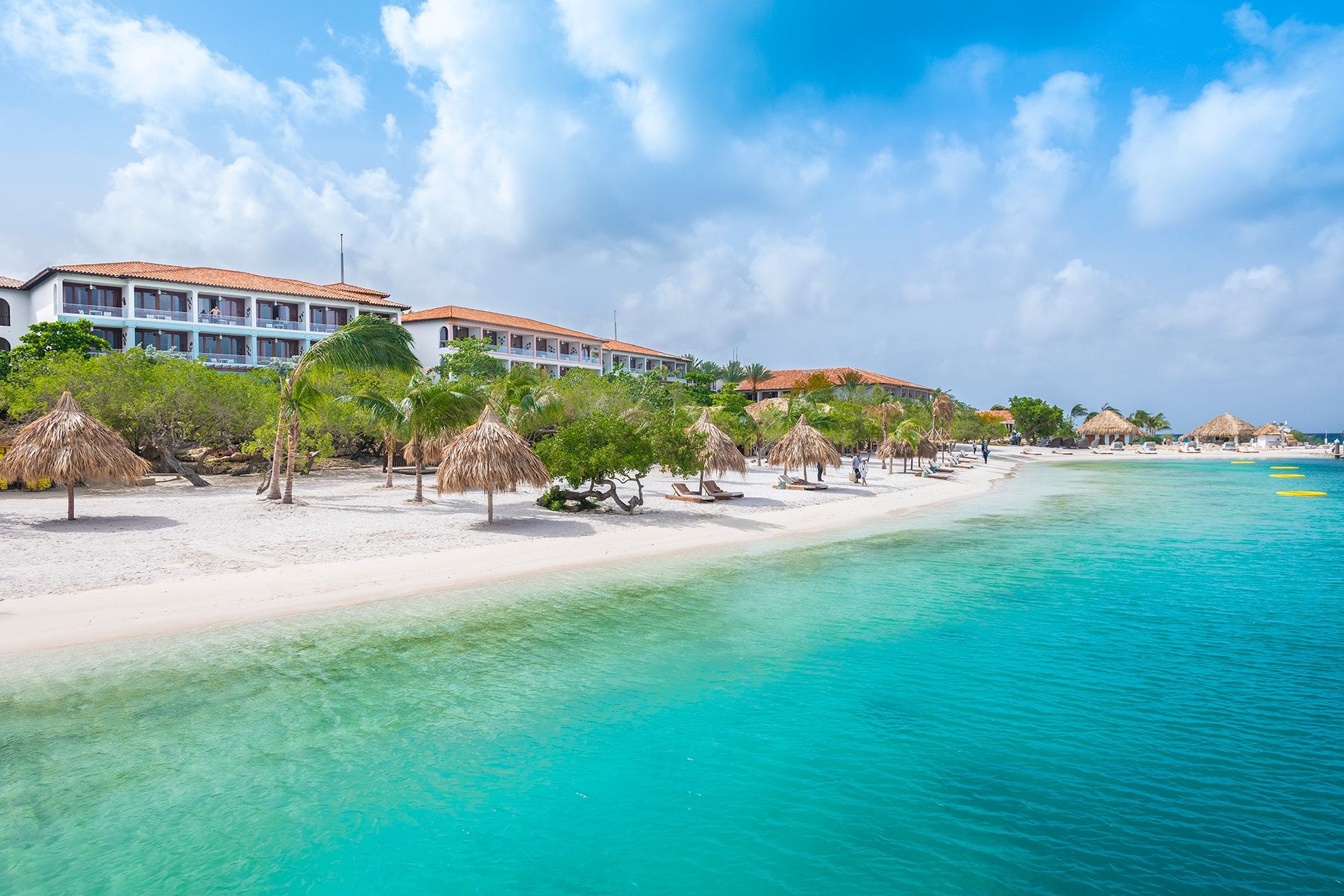
Curaçao has more than 30 beaches all of which offer a different experience. Kenepa Beach, Playa PortoMari and Mambo Beach are three of the most popular, which means that they’re frequently crowded. Playa Kalki is cosy and great for water sports like snorkelling. Cas Abao on the other hand is a scuba diving hotspot and a favourite among tourists and locals alike, with a small entrance fee required. The latter includes restrooms, showers and parking.
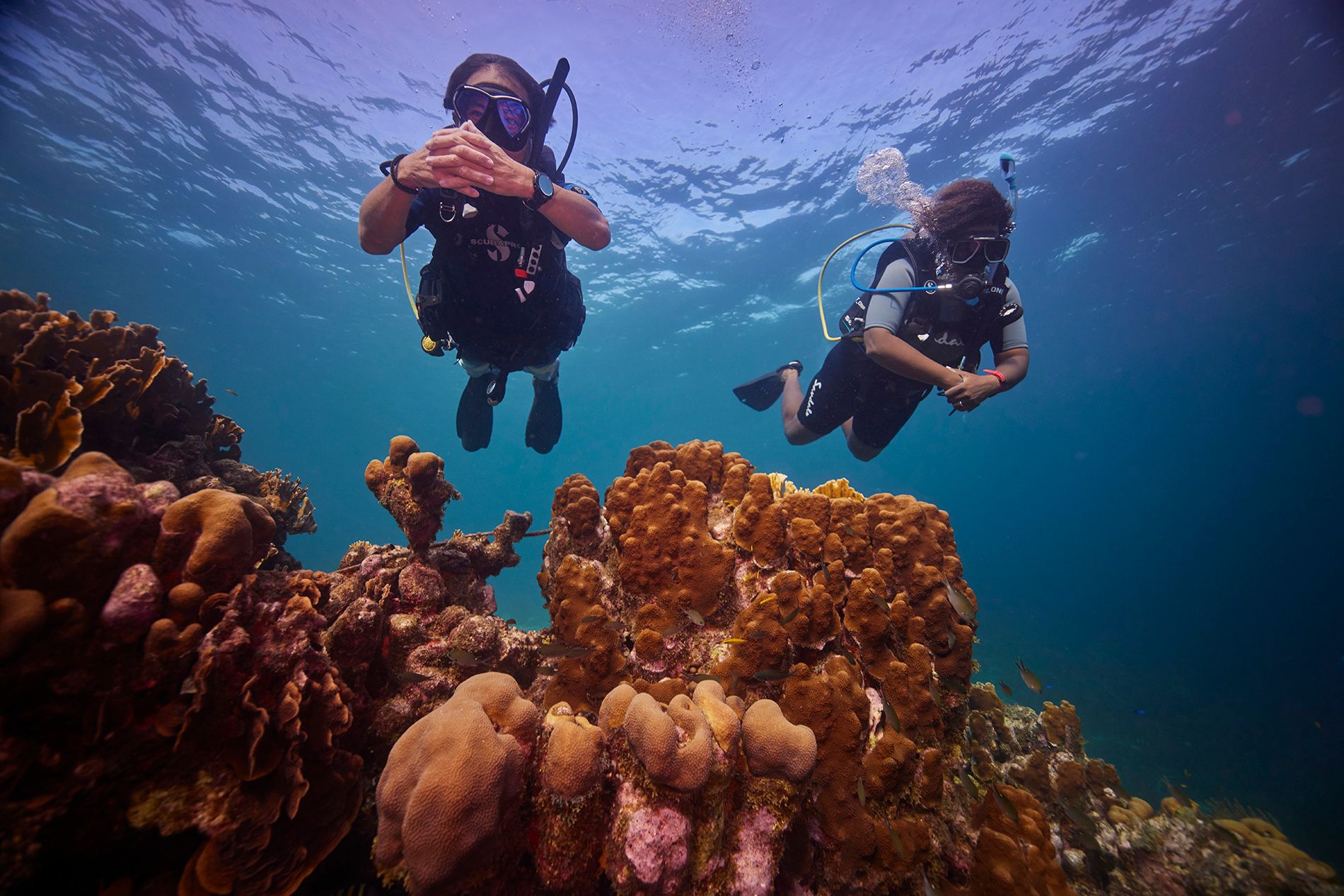
Curaçao has some of the best dive sites in the world. Many of these sites are suitable for both beginners taking their first dive and experts who are used to navigating the undersea. Beginners can start off with Booby Trap in the south (don’t let the name scare you!). This sloping reef has a range of corals and all types of sponges. Booby Trap is located just outside of Fuik Baai and can only be accessed by boat. Porto Mari is another site that offers easy access via the beach. It is suitable for beginners and advanced divers. At Porto Mari, divers can expect to see lots of fishes, turtles and a ray or two on a lucky day.
Insider tip: PADI® certified guests of the Sandals all-inclusive resort in Curaçao dive for free (max. two tanks a day), this includes professional equipment. Not certified yet? Get PADI® certified at the resort at additional cost and dive the rest of your holiday for free. Over 100,000 guests got certified at Sandals: the professional scuba staff will help you get comfortable and ready to go!
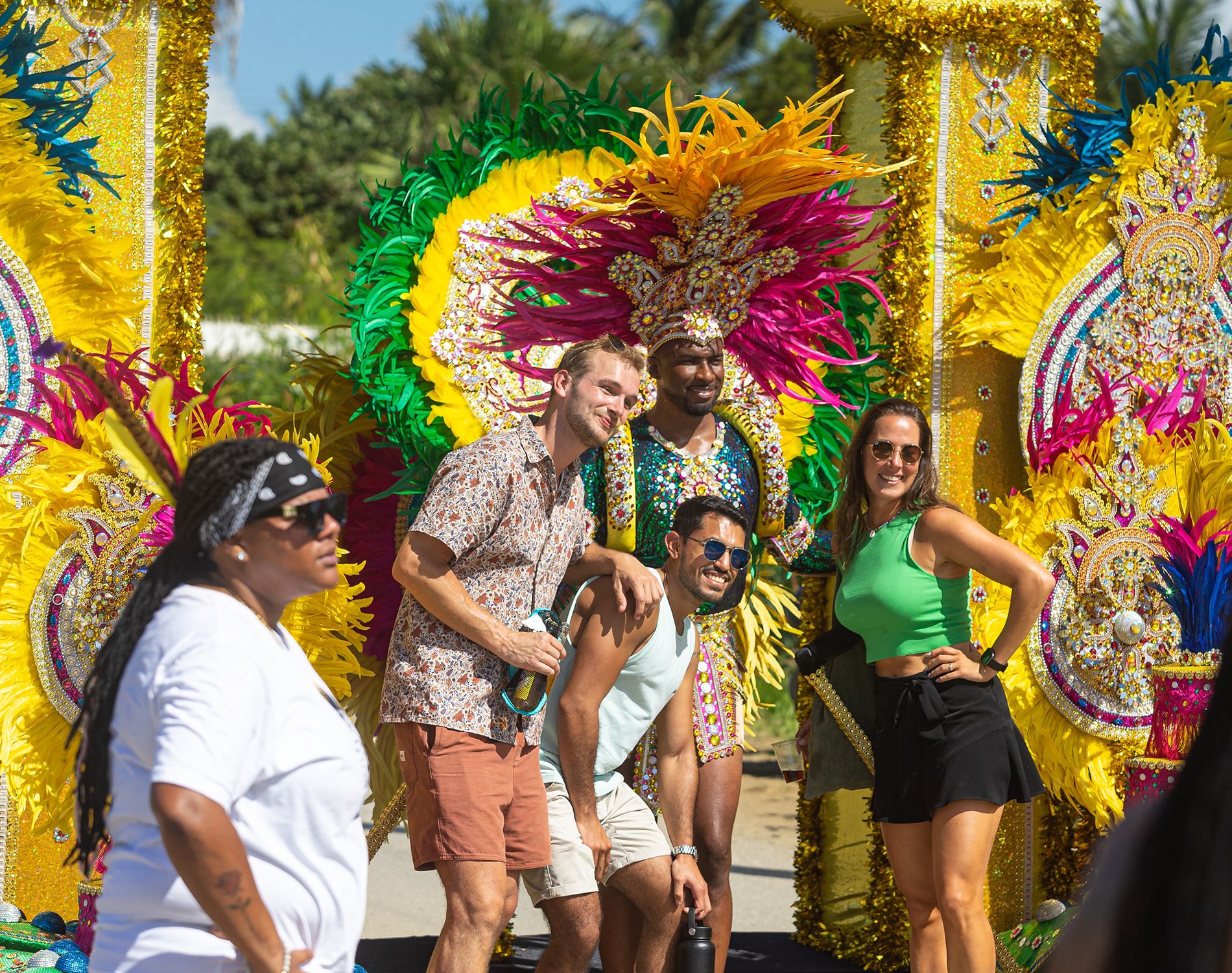
Diverse in more ways than one, the Dutch Caribbean island of Curaçao, part of the Kingdom of the Netherlands, was occupied by the Arawaks more than 6,000 years ago. It was first ruled by the Spanish in the 16th century when Spanish Commander, Alonso de Ojeda, discovered the island. In the mid-16th century, the Dutch took over from Spain and in 1651, the first set of Jewish immigrants came to live in Curaçao. Britain also joined in the fight but ultimately the Dutch reigned supreme in a ruling that greatly transformed the island. To this day, this ruling has influenced the way of life of the people.
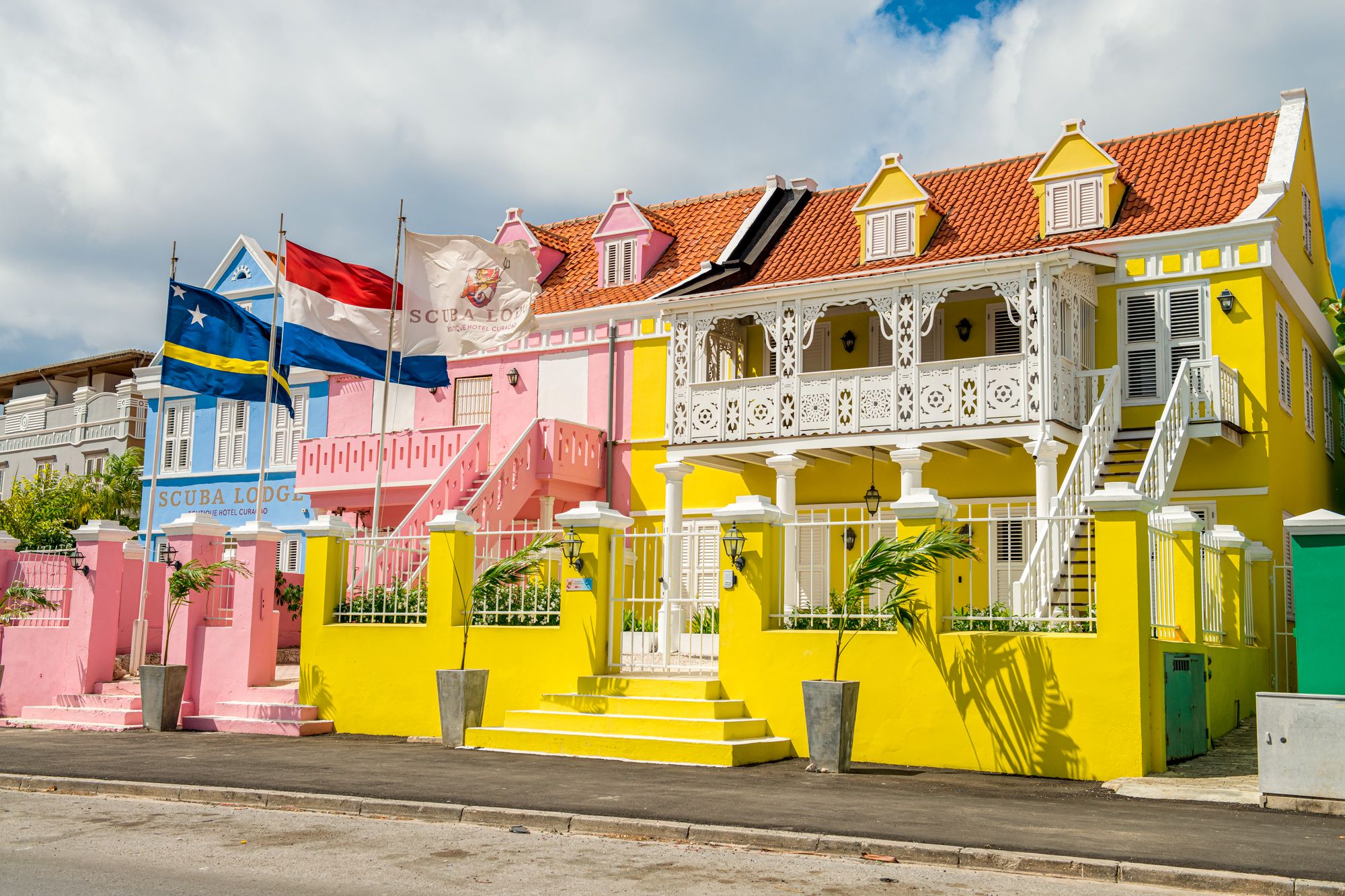
Curaçao’s capital Willemstad is a UNESCO World Heritage Site marked by its amazing architecture, waterways, tropical scenery, and street cafés. Visitors love this vibrant city centre and tours through Willemstad are extremely popular. While in Willemstad, you’ll notice that the city is literally cut in half and joined by a bridge known as Queen Emma Bridge.
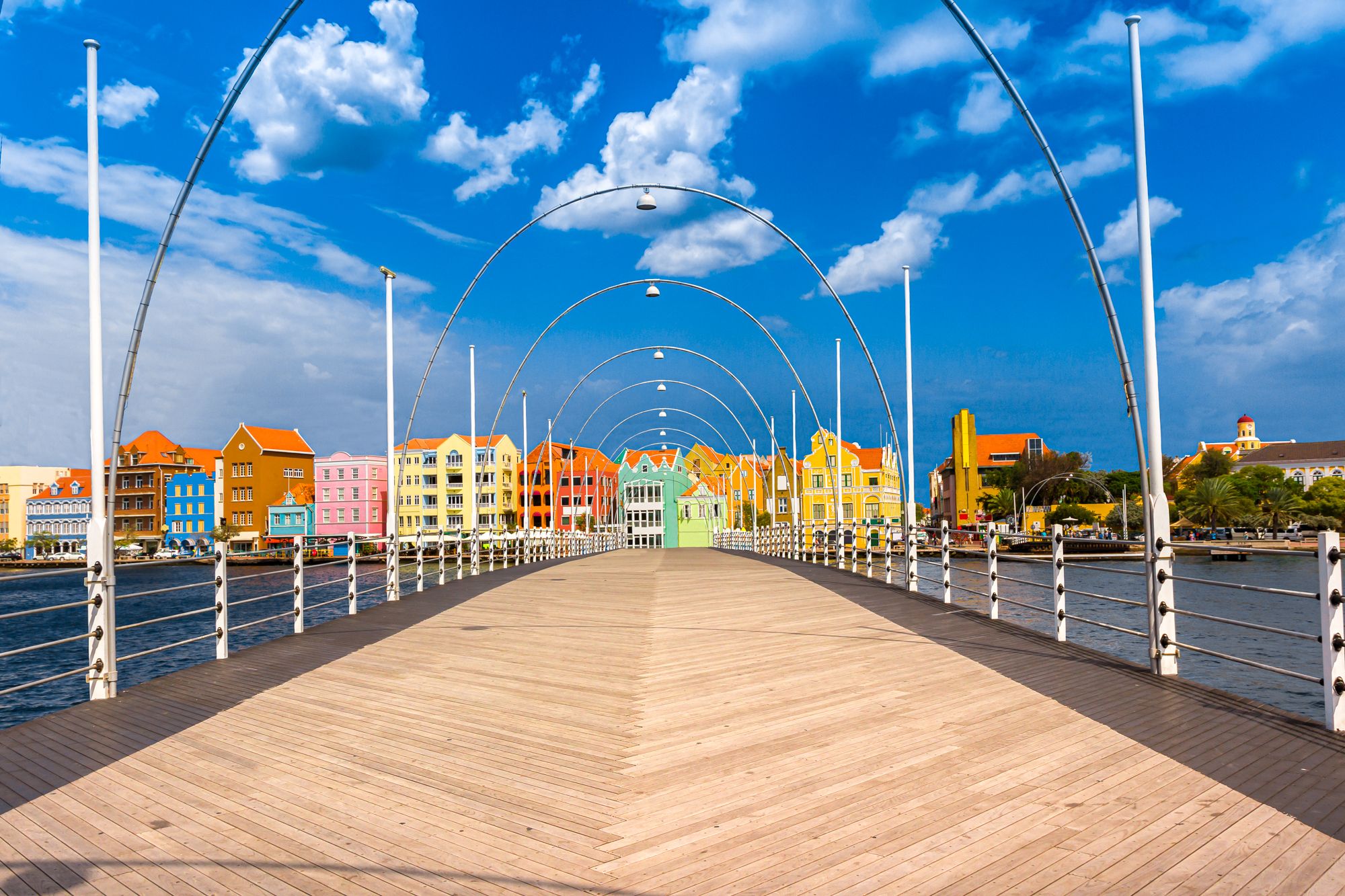
This bridge, which extends across St. Anna Bay, joins Punda and Otrobanda in Willemstad and is braced by two motors and 16 pontoon boats. If you get there in time, you’ll get to see this “Swinging Old Lady” open her gates to allow ships to come through and exit. There are also water taxis to take you back and forth across the waters, as you wish. The Queen Emma Pontoon Bridge is quite a lovely sight at nighttime, particularly if you’re watching it in action from nearby. Try it out while having a drink or two with friends in the city and enjoy the lights on the water.
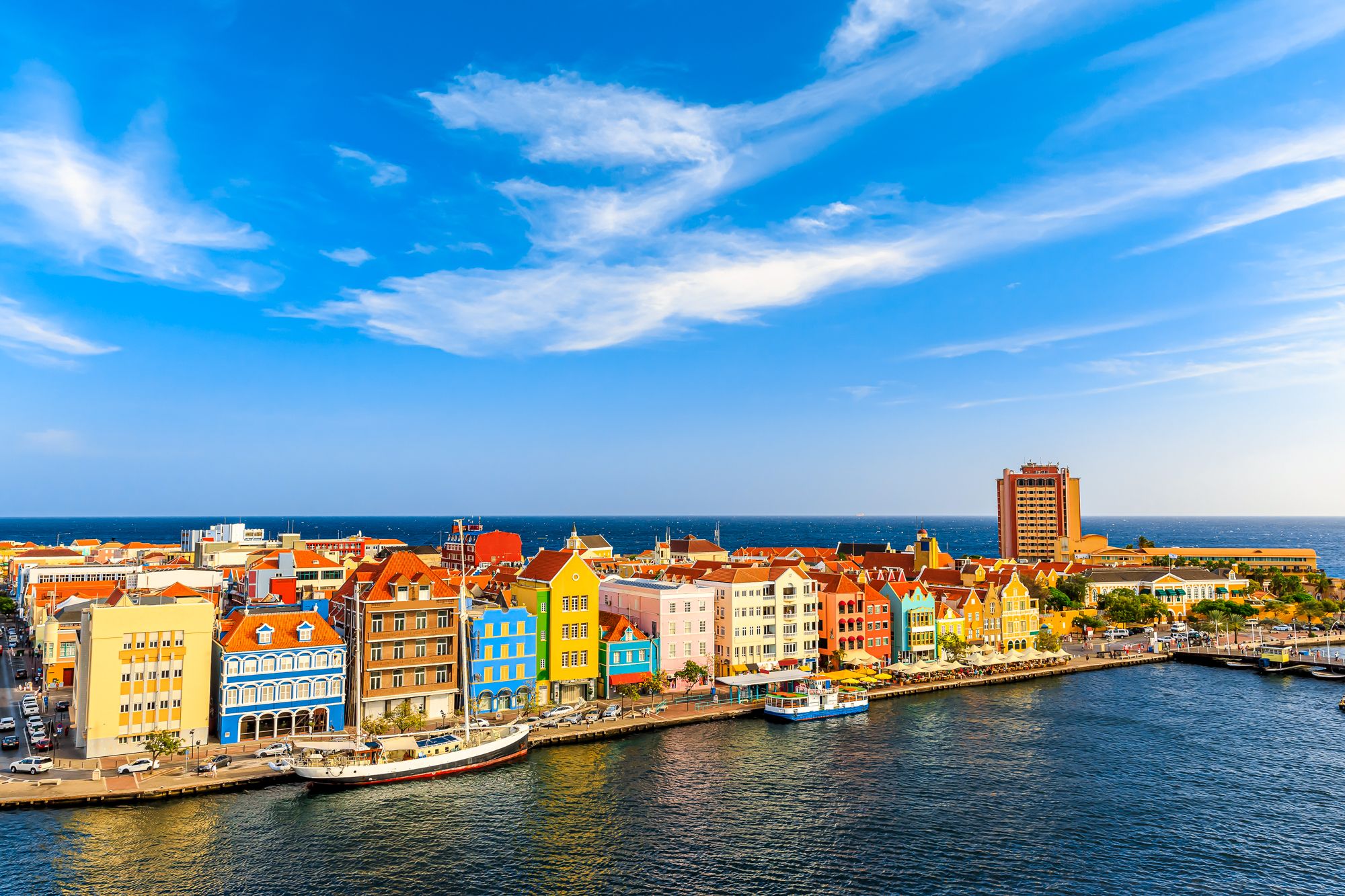
Handelskade is a waterfront strip in Punda lined with colourful houses and 18th-century-style buildings. Handelskade is a major tourist attraction and is loved for its outdoor cafés. From this vantage, there’s a cool view of the ships going through the Queen Emma Pontoon Bridge. On a sunny day, a walk along this pier is perfect for getting some fresh air and taking a selfie or two against the picturesque Curaçao city backdrop. Handelskade is also really beautiful at night when the lights illuminate the bay and bring it to life.
Insider tip: Before leaving Handelskade, visit the Floating Market in the north. In this market, you can find lots of vendors selling fruits and many eager fishermen with their catch of the day.
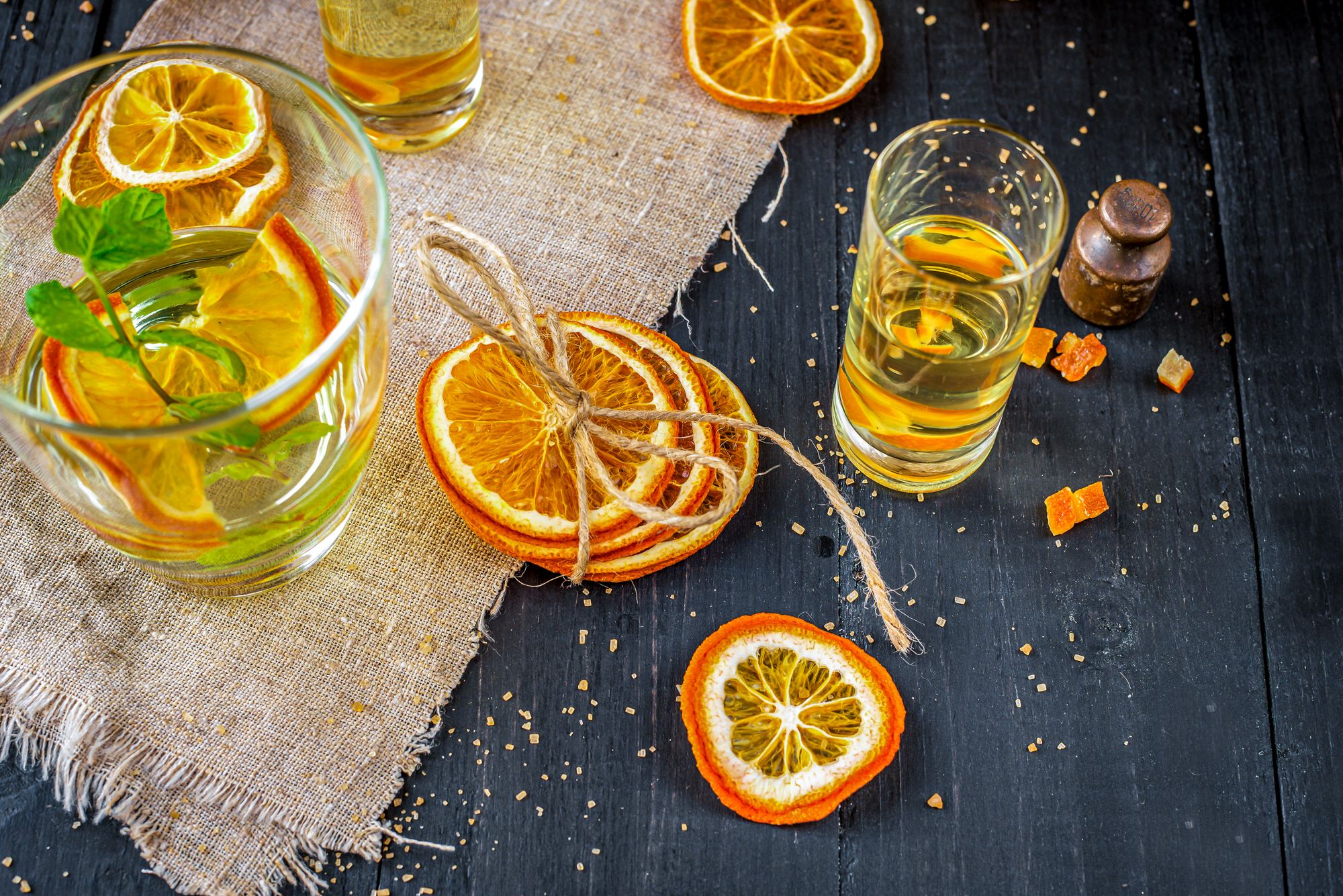
The famous “Orange Liqueur” from Curaçao is an alcoholic beverage made with the dried orange peels of the Laraha orange, which is a bitter fruit found on the island. This fruit is also called the “Golden Orange of Curaçao.” The peels are blended with herbs and spices to create this signature drink. It is sold in varieties of orange, green, blue and white. It’ll be worth your while to bring a little bit of Curaçao back home with you by grabbing a bottle of Orange Liqueur to share with friends and family.
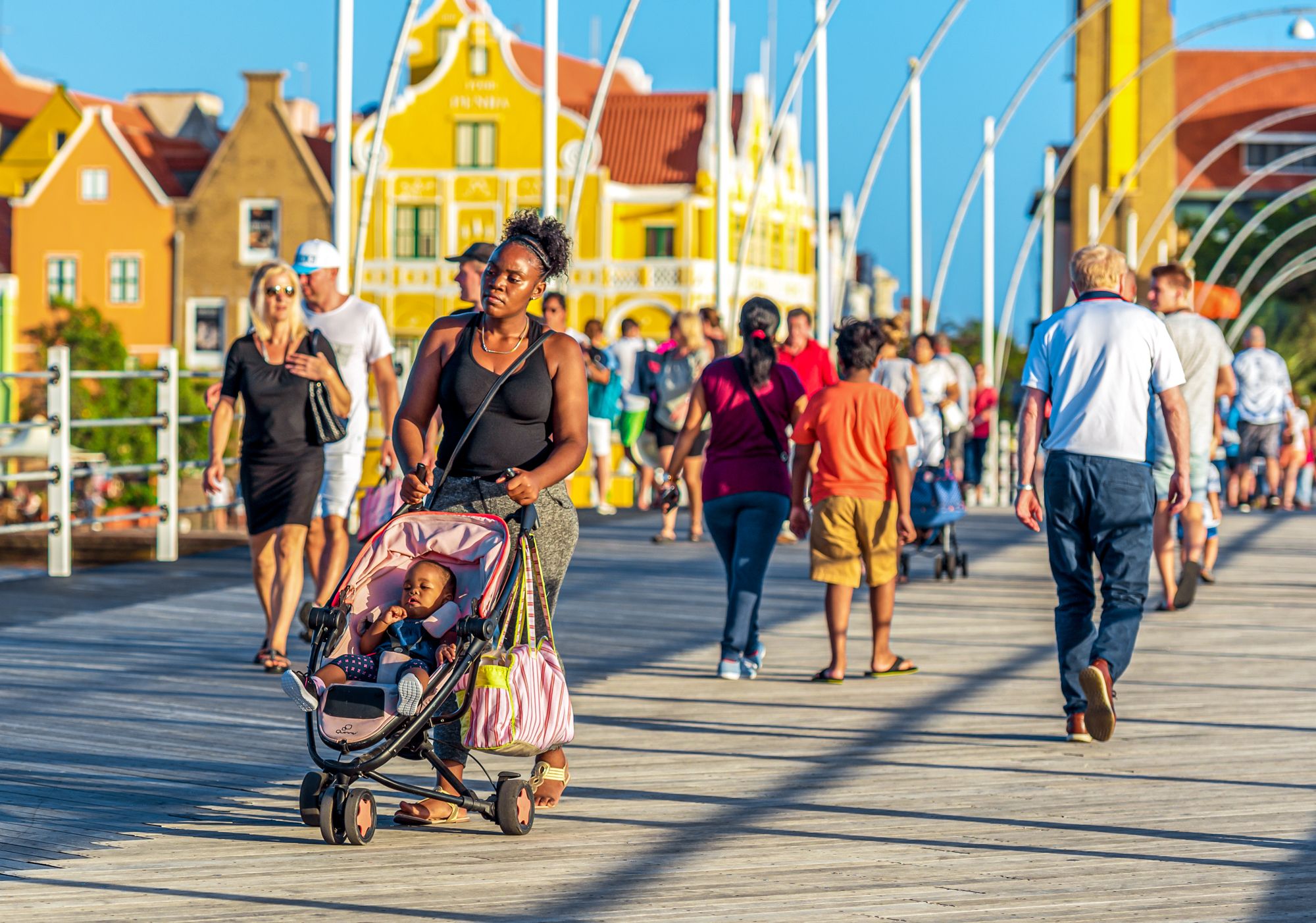
Spanish, Dutch and British influences can be seen across the island of Curaçao, and this is most evident in the languages spoken on the island. Many locals easily switch between speaking creole, Dutch, English, Papiamentu, and Spanish. This has also influenced the wide range of music that is played on the island, which includes reggae, mazurkas, danzas, tumba, American pop, and bachata.
Curaçao is known for many things, including a gorgeous Sandals all-inclusive resort. Curaçao is one of those destinations that promises an experience with a difference and delivers. This mesmerising island will sweep you off your feet and find its way to your heart.
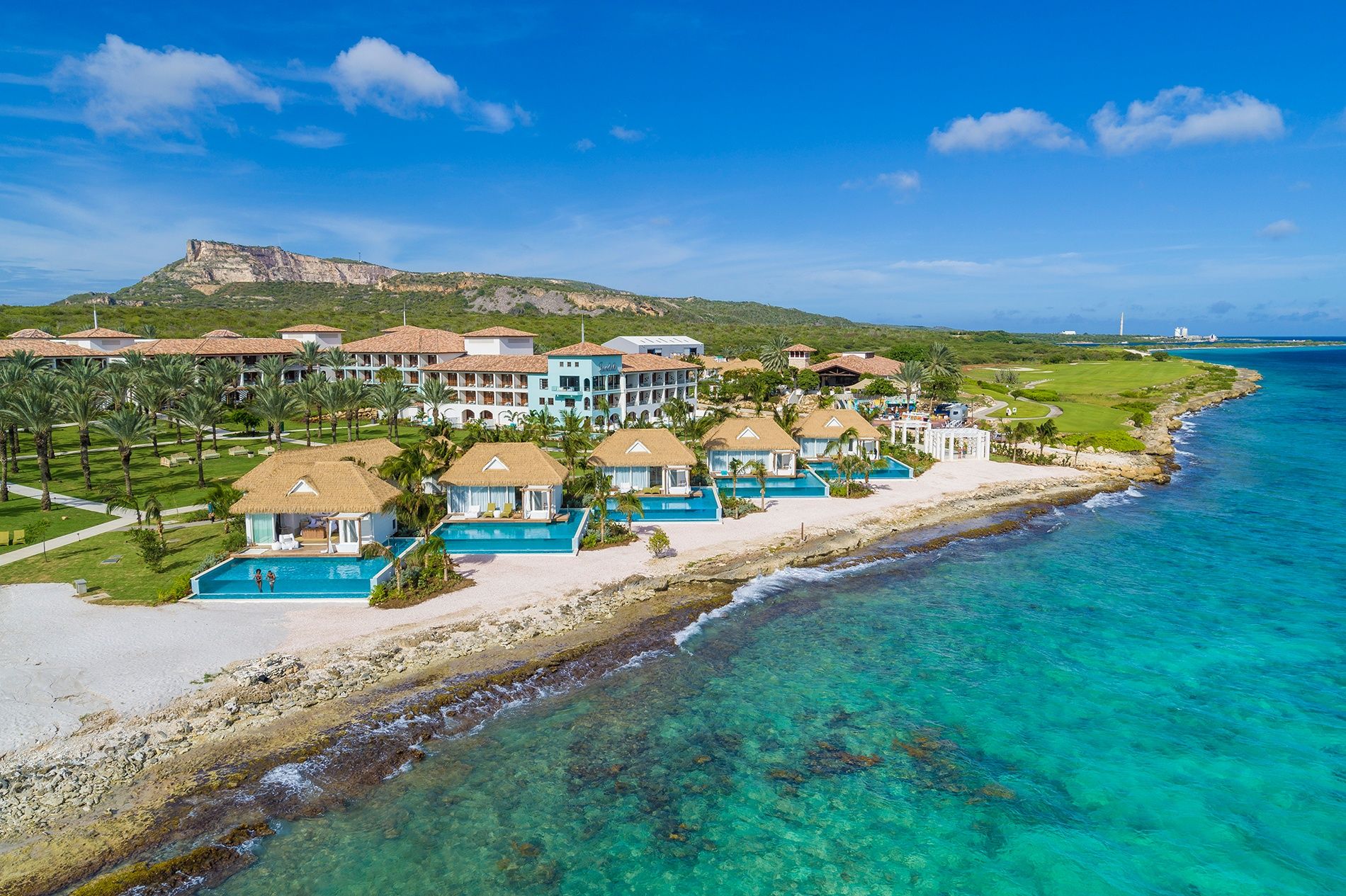
Picture: Now that you know what Curaçao is all about, it's time to dive in and book your stay at Sandals Royal Curaçao. The best part? The drinks are on us.